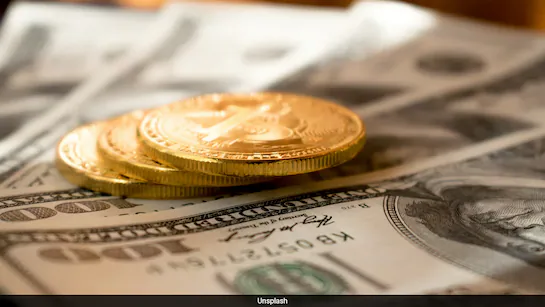Dollar Dips As US Election Outcome Remains Uncertain, Fed Rate Cut Looms
As investors prepared for a potentially crucial week for the world economy—during which the United States selects a new leader and likely lowers interest rates once again with significant ramifications for bond yields—the dollar fell in Asia on Monday. The dollar fell 0.3% against the yen to 152.45 yen, while the euro increased 0.4% to $1.0876 but is still facing resistance around $1.0905. At 103.94, the dollar index decreased by 0.3%.
In opinion polls, Republican Donald Trump and Democratic nominee Kamala Harris are still essentially tied, and the outcome may not be known for days after the election. While Harris was viewed as the continuity candidate, analysts predict that Trump’s immigration, tax, and tariff policies will push inflation, bond rates, and the dollar higher.

A reputable survey that showed Harris unexpectedly gaining a 3-point lead in Iowa, partly due to her appeal with female voters, may have contributed to the dollar’s early decline, dealers said. According to Chris Weston, an analyst at broker Pepperstone, “it is generally accepted that a Trump victory will be favorable for the USD, though many feel this outcome has been discounted.” “A Trump presidency with full control of Congress could be most impactful, as one would expect a solid sell-off in Treasuries resulting in a spike higher in the USD.”
“A Harris win and a split Congress would likely result in ‘Trump trades’ quickly reversed and priced out,” he stated. “The USD, gold, bitcoin and U.S. equity would likely head lower.” Markets believe the Fed will lower rates by a standard 25 basis points on Thursday instead of repeating its disproportionate half-point easing because of uncertainty surrounding the conclusion.
According to futures, there is an 83% possibility of a move of the same magnitude in December and a 99% chance of a quarter-point decrease to 4.50%–4.75%. “We are pencilling in four more consecutive cuts in the first half of 2024 to a terminal rate of 3.25%-3.5%, but see more uncertainty about both the speed next year and the final destination,” Jan Hatzius, an economist at Goldman Sachs, said. “Both our baseline and probability-weighted forecasts are now a bit more dovish than market pricing.”
It is anticipated that the Bank of England will cut by 25 basis points during its meeting on Thursday, the Riksbank will ease by 50 basis points, and the Norges Bank will remain on hold. Tuesday is the Reserve Bank of Australia’s meeting, and it is anticipated that rates will remain unchanged. A steep sell-off in gilts after the Labour government’s budget last week, which also caused the pound to decline, has complicated the BoE’s decision.
Sterling had recovered some of its losses by early Monday and was trading at $1.2963, a considerable distance from its low of $1.2841 last week. China’s National People’s Congress, which meets Monday through Friday, is also anticipated to provide more stimulus. In order to boost its faltering economy, Beijing is thinking of authorizing next week the issuance of more than 10 trillion yuan ($1.40 trillion) in additional debt over the coming years, according to sources who spoke to Reuters last week.


Comments are closed, but trackbacks and pingbacks are open.